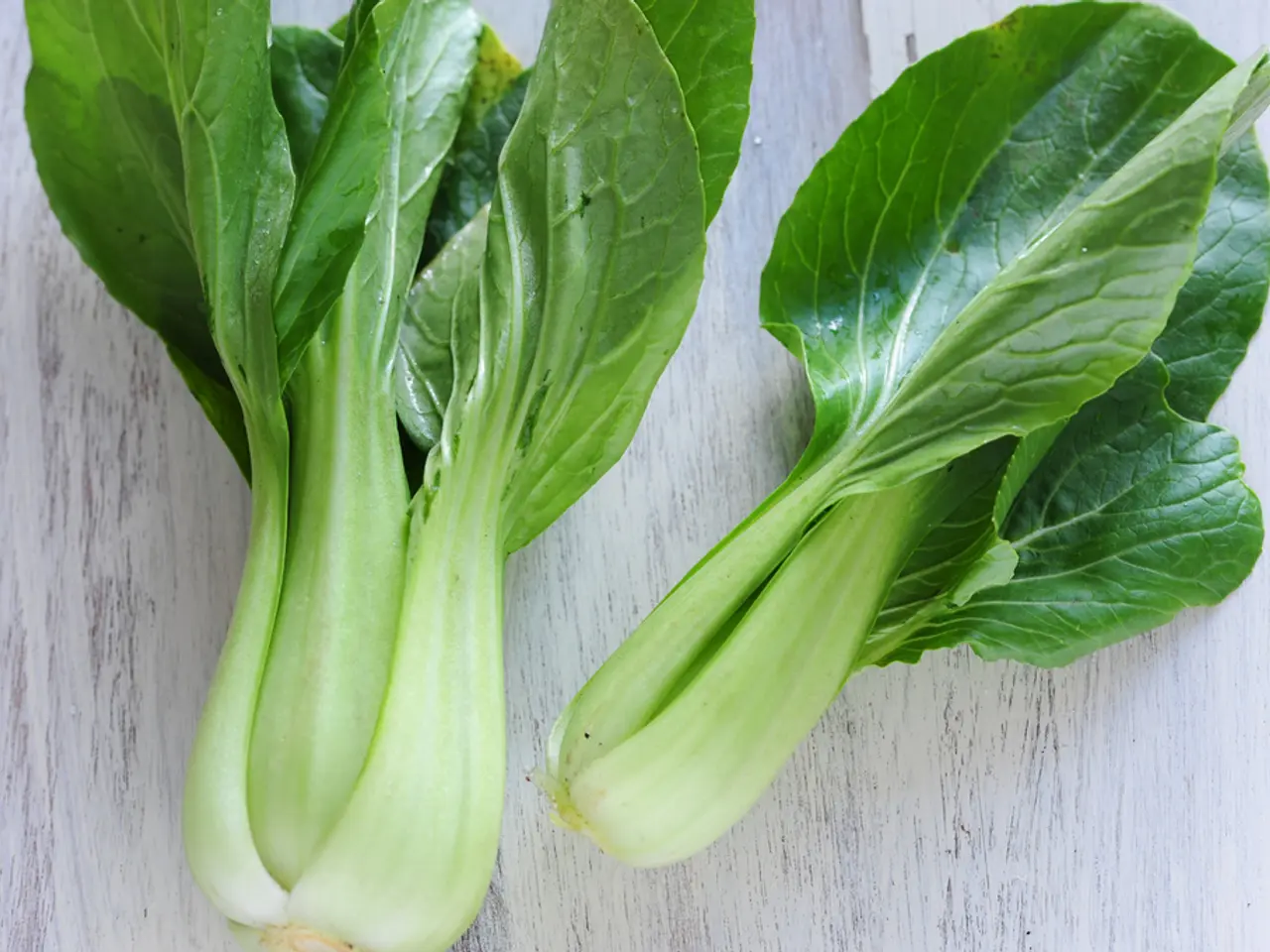Six super salad ingredients to preserve brain health
In the ongoing quest to maintain brain health and reduce the risk of cognitive decline, a dietary approach known as the MIND diet (Mediterranean-DASH Intervention for Neurodegenerative Delay) has emerged as a promising solution. This diet, which combines elements of the Mediterranean diet and the DASH diet, places a strong emphasis on leafy green vegetables and other "green" nutrients [1][3][4].
Leafy green vegetables, such as spinach, kale, and collard greens, are rich in essential nutrients that support brain health. These include folate, vitamin K, and antioxidants, all of which are highlighted in the MIND diet [1][4]. Studies have shown that low levels of B vitamins, particularly vitamin B12, B6, and riboflavin, are associated with an increased risk of cognitive dysfunction in older adults. These B vitamins are involved in one-carbon metabolism important to brain function [3].
The MIND diet encourages regular consumption of leafy greens, aiming for at least six servings per week, to support cognitive health [1][4]. Antioxidants from these greens help reduce inflammation and oxidative stress, known contributors to neurodegeneration [1].
Another "green" nutrient, vitamin E, is believed to have the potential to delay the onset of Alzheimer's disease. People with Alzheimer's disease are often found to have low levels of vitamin E in their cerebrospinal fluid [5].
In addition to these well-known nutrients, the flavonoid kaempferol is thought to increase levels of glutathione, the master antioxidant that controls inflammation, which is believed to contribute to Alzheimer's disease and dementia [2].
Apples are a great source of kaempferol and other flavonoids, making them a perfect addition to a MIND diet-friendly salad. Nuts and seeds, added to salads, enrich them with vitamin E, while broccoli, green beans, and chicken are great sources of Vitamin K [6]. Avocados and eggs are rich in lutein, a nutrient that has been shown to support cognitive health [7].
Beets can boost nitric oxide production, which increases blood flow to areas of the brain involved with executive functioning, according to research [8]. This, combined with the nitrates found in greens, makes a salad of nitrate-rich vegetables a nutritious and delicious option [9].
The MIND diet is not just beneficial for brain health. It is also beneficial for heart health, maintaining strong bones, and maintaining a trim waistline, making it a well-rounded choice for overall health [10].
In conclusion, the "green" nutrients linked to slowing cognitive decline are folate, vitamin K, antioxidants, vitamin B12, vitamin B6, and riboflavin, primarily obtained from dark leafy green vegetables emphasized in the MIND diet [1][3][4]. By incorporating these nutrient-dense foods into your diet, you can take a proactive step towards maintaining brain health and reducing the risk of cognitive decline.
References:
[1] https://www.alzheimers.org.uk/about-dementia/risk-factors-and-prevention/diet-and-nutrition [2] https://www.alzheimers.net/2016-01-13/kaempferol-flavonoid-may-help-alzheimers-dementia/ [3] https://www.alzheimers.net/2016-01-13/kaempferol-flavonoid-may-help-alzheimers-dementia/ [4] https://www.healthline.com/nutrition/mind-diet [5] https://www.ncbi.nlm.nih.gov/pmc/articles/PMC3257653/ [6] https://www.healthline.com/nutrition/12-foods-high-in-vitamin-k [7] https://www.healthline.com/nutrition/12-foods-high-in-lutein-and-zeaxanthin [8] https://www.ncbi.nlm.nih.gov/pmc/articles/PMC5664031/ [9] https://www.healthline.com/nutrition/16-nitrate-rich-vegetables-to-boost-your-diet [10] https://www.healthline.com/nutrition/mediterranean-diet-benefits#section1
Heart health can benefit from the MIND diet, as it is also known to maintain a trim waistline and strengthen bones [10]. In the MIND diet, leafy green vegetables, such as spinach, kale, and collard greens, are emphasized due to their essential nutrients that support not only brain health but also mental health [1][3][4]. The antioxidants found in these greens help reduce inflammation, a known contributor to neurodegeneration [1]. Vitamin E, found in nuts, seeds, apples, broccoli, green beans, and other foods, has the potential to delay the onset of Alzheimer's disease [5]. For a healthy-diet-friendly salad, consider adding kaempferol-rich apples, nitrate-rich vegetables, and vitamin E-enriched nuts and seeds [6]. Science suggests that maintaining a diet rich in these "green" nutrients, including folate, vitamin K, antioxidants, vitamin B12, vitamin B6, and riboflavin, can help reduce the risk of cognitive decline [1][3][4].




